As children, many of us were taught that it’s important to always do our best. Give 100% of our effort and go above and beyond at all times. Hard work pays off! But in reality, that’s not always sustainable. Juggling a full-time job with a social life, personal responsibilities, hobbies and maintaining relationships can be too much. We have a finite amount of time and energy available each day, and it can be easy to burn out if we’re working too hard all the time. Not every single day of work has to be record-breaking.
One employee on Reddit knows this all too well, as they recently shared a saga on the Malicious Compliance subreddit detailing how they were instructed to work at “full capacity” during every single shift. Below, you can read the story Ilookbetterthanyou posted online, as well as some of the replies it has received from readers.
We would love to hear your thoughts in the comments below too. Can you relate to this experience at work, or do you believe we really should be giving 100% of our effort 100% of the time? Then if you’re interested in checking out another Bored Panda article featuring malicious compliance in the workplace, we recommend reading this story next!
This employee maliciously complied to demands to work at “full capacity” until management started regretting their actions

Image credits: Yan Krukov (not the actual photo)
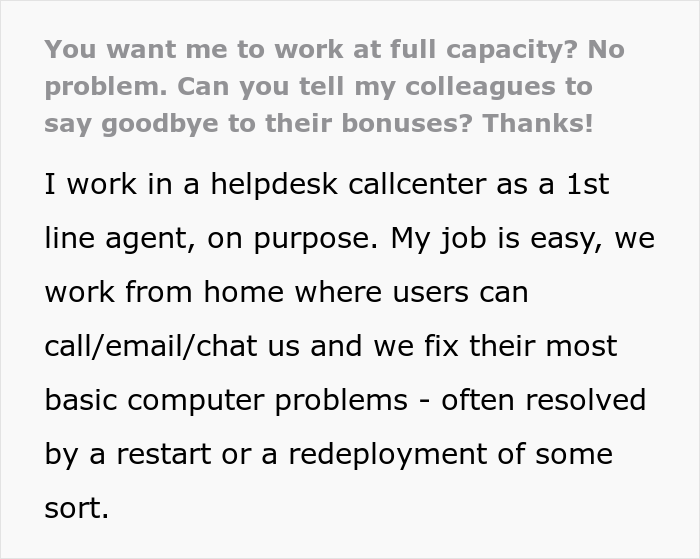

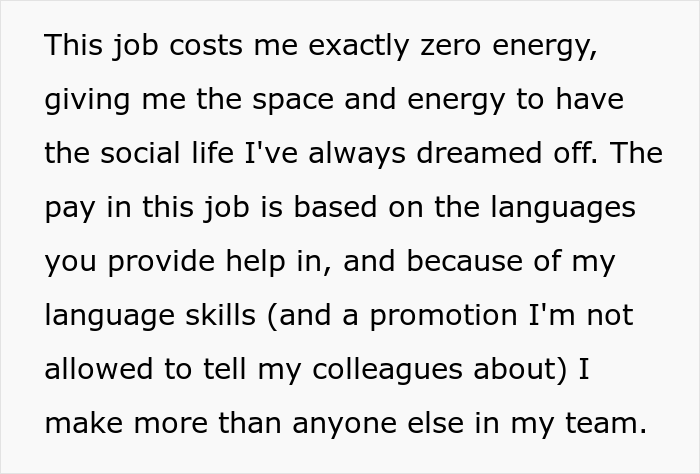
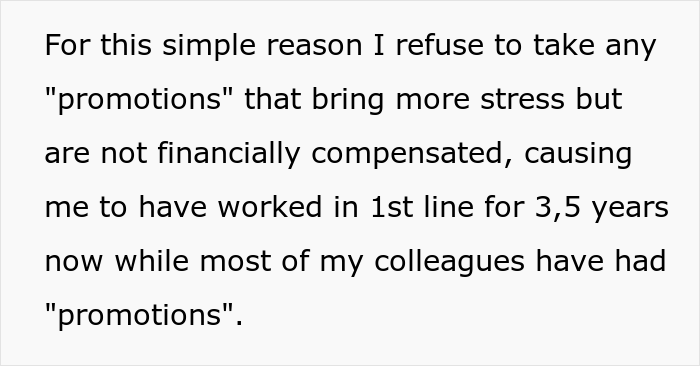
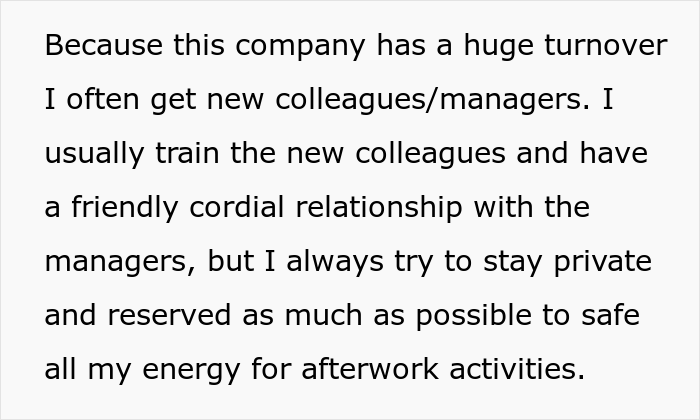
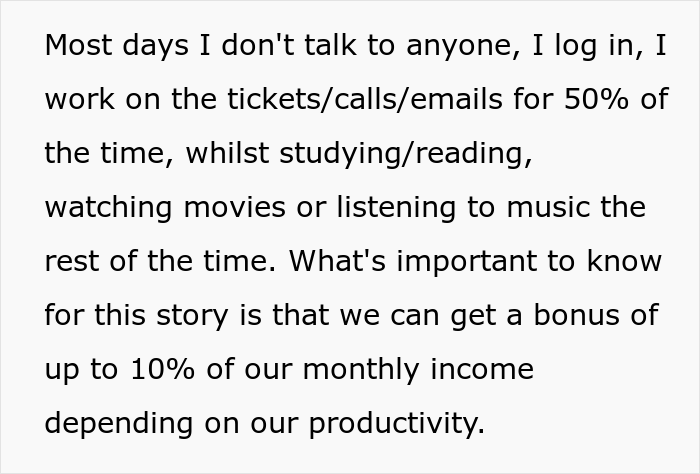

Image credits: Yan Krukov (not the actual photo)
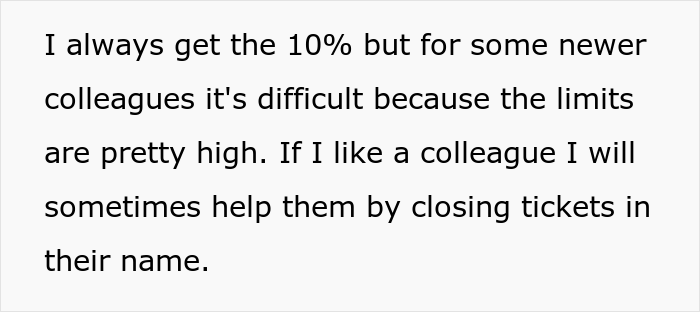
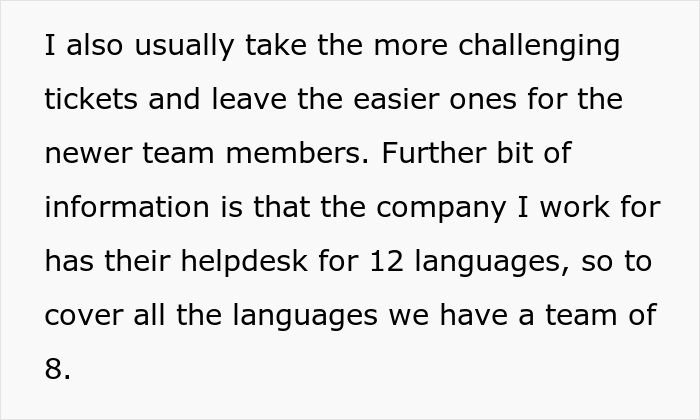
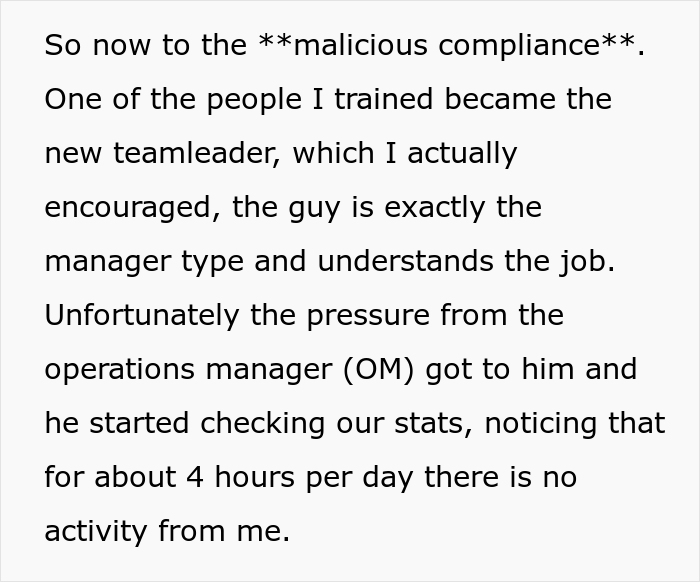
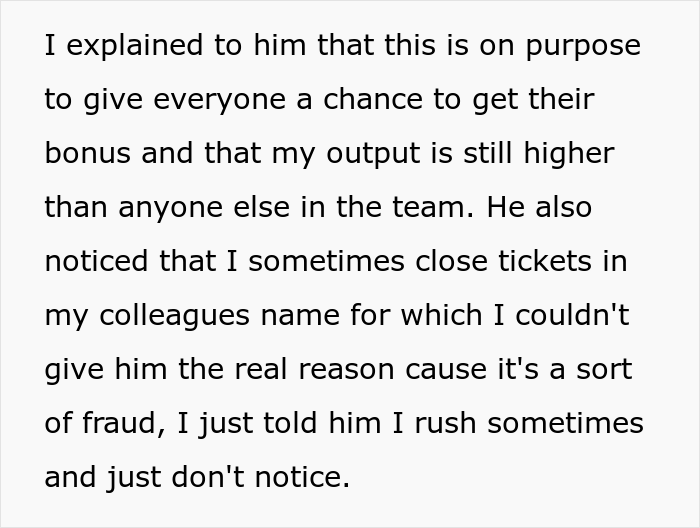
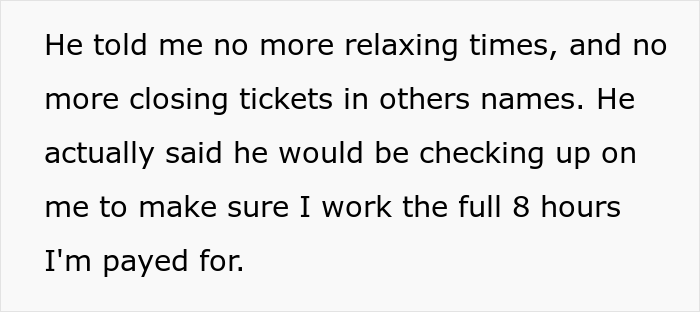
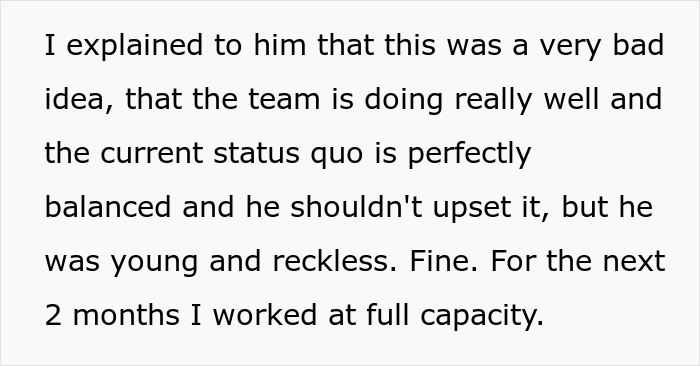

Image credits: Stephen Phillips (not the actual photo)
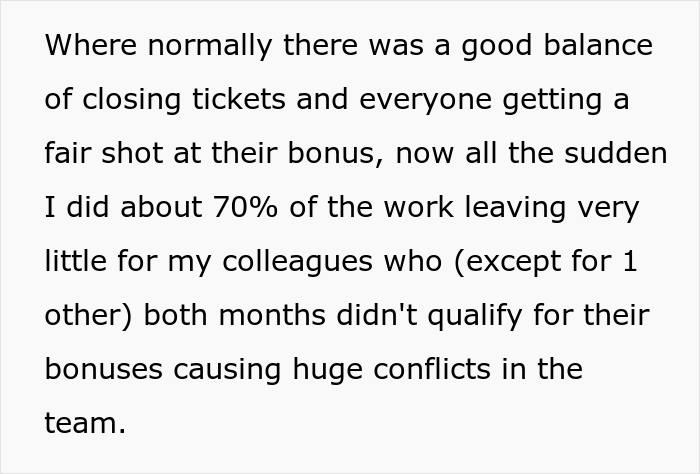

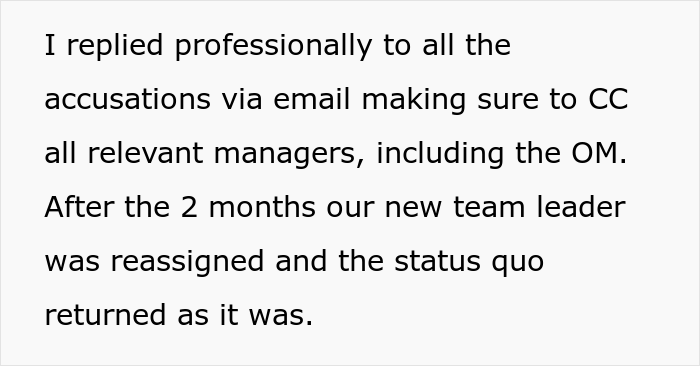
Image credits: Ilookbetterthanyou
It’s understandable that management wants to have productive employees on the payroll. There’s no reason to keep people around if they aren’t doing their jobs well. But there also have to be limits. What might be “full capacity” for all of their colleagues is much less work than what this employee can get done when giving 100% of their effort. It is not fair to expect them to work more just because they are more efficient or more experienced, and it is not sustainable to have them going at full speed for 8 hours a day every single day.
Sometimes, employees are also hesitant to work at full capacity when they know it might be exploited by their employers. If management knows they can get twice as much done as everyone else, they might be expected to start working more. It is often a strategy for employees to ensure they do not become overworked to not allow their managers or bosses know just how much they can do. If 50% is considered acceptable and keeps their higher ups satisfied, there is no need to give more than that, especially if the job is not paying particularly high salaries. Why go home mentally and/or physically exhausted when you could have conserved some of that energy for the rest of your life?
The BBC actually published an article several years ago about why employees shouldn’t be working at full capacity, and they address the idea of “work martyrs”, or people who sacrifice so much for their careers that they suffer from stress and burnout. Binal Patel, a data scientist from North Carolina, spoke to the BBC about how he dove headfirst into a start-up running analytics for the healthcare industry at age 23. He reported that he would work 12-hour days at 200%, which he soon found unsustainable.
“Over time, your company expects you to work at that initial level because that’s what you’ve done before, and you expect yourself to be at that level because that’s what you’ve been putting in,” Binal explained. “But working that hard all the time just isn’t feasible.” He noted that the inevitable dip in his productivity, as well as the pressure to be working at maximum capacity, began taking a toll on his mental health. And this is a common issue, particularly among young people.
According to a study from The Workforce Institute at Kronos, 81% of salaried employees in the United States report working outside of their standard work hours, with over a third of them doing it three or more times a week. And when it comes to millennials, 43% of them admit to being work martyrs, compared to only 29% of the entire workforce. This hustle culture can lead to dangerous side effects as well, as being overworked has been linked to stress-related health problems such as depression, impaired sleep, heavy drinking and even a greater risk of strokes and heart disease.
It’s perfectly understandable why this employee did not want to be working at “full capacity”, and his supervisors should have understood that. But I would guess that they ended up learning a lesson from the whole experience, and hopefully this worker will never have to deal with that stress again. We would love to hear your thoughts on this topic in the comments below. Do you work at full capacity every day, or do you think it’s best to set limits on how much you exert yourself in the workplace?
The employee then responded to some of the readers, clarifying details and joining in on the conversation
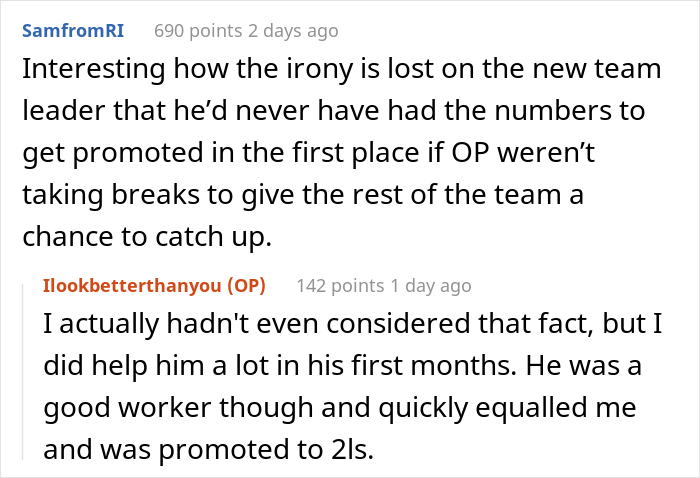
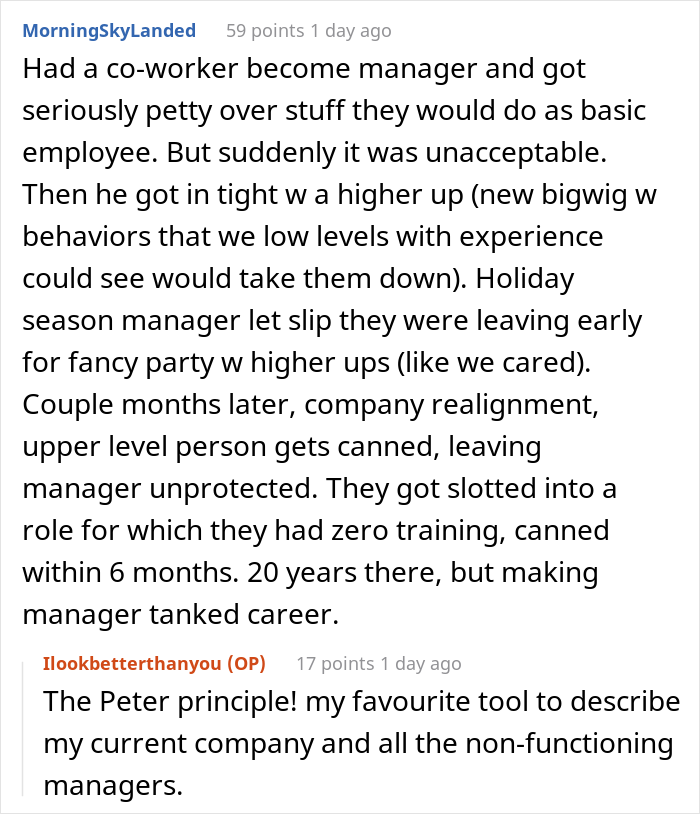
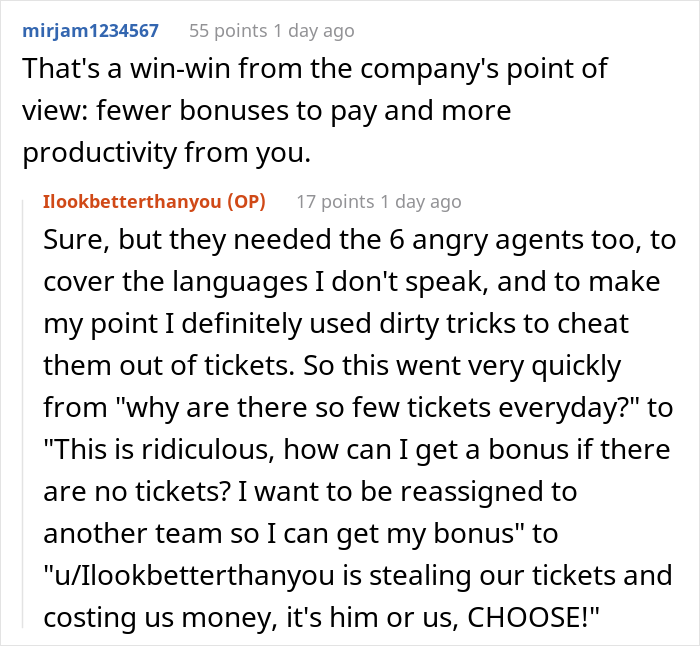

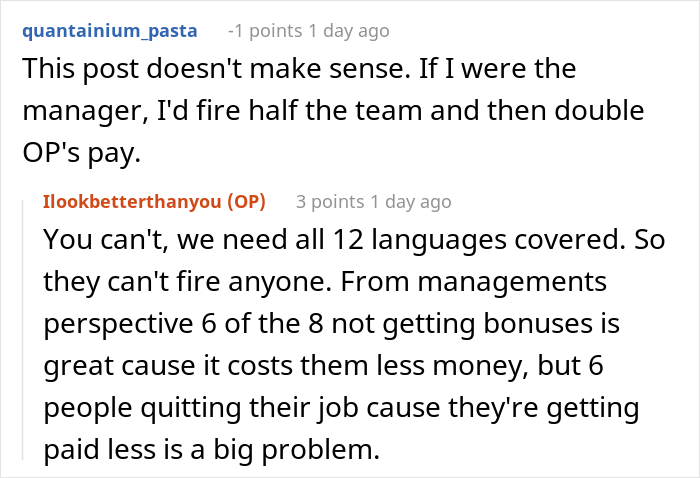
Many readers also chimed in to note the incompetence of this employee’s managers
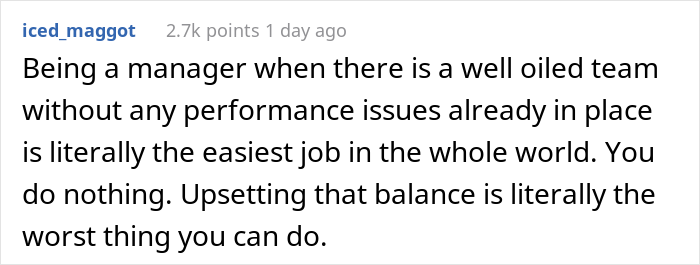



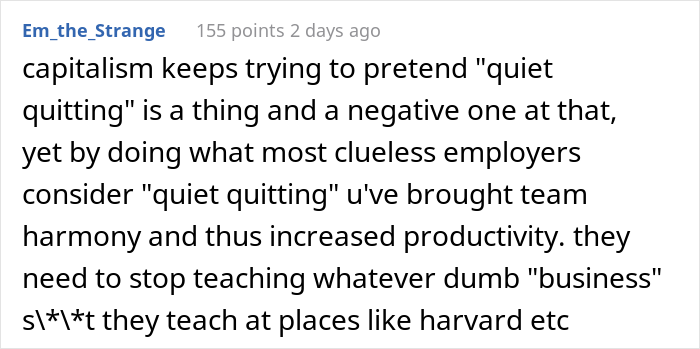
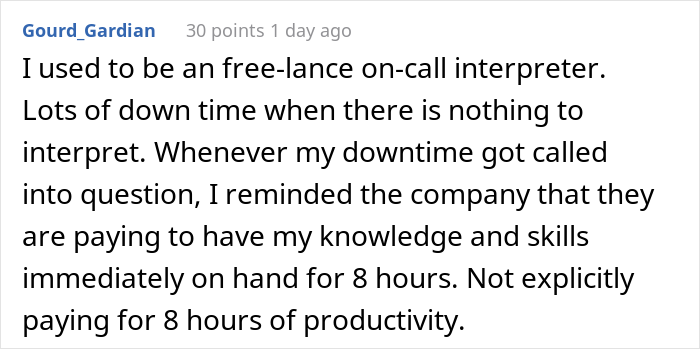

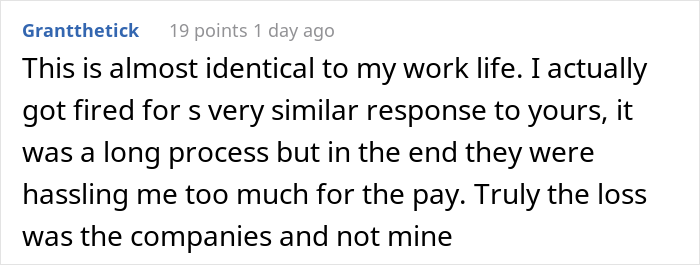

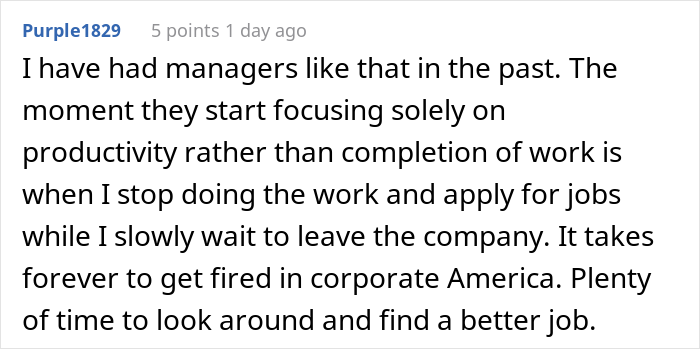
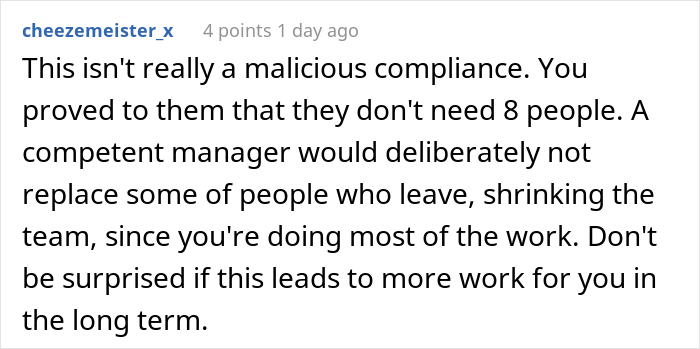
The post Manager Demands That Everyone Work At “Full Capacity”, Regrets It After Single Employee 'Steals' Everyone's Bonuses first appeared on Bored Panda.
from Bored Panda https://ift.tt/MksPRAY

